Updated October 2022
You're probably confused about what matters most when buying bedding. All the experts contradict each other and it's hard to get a straight answer from anyone. We encountered the same issue when we decided to launch our own bedding brand, Authenticity50, so we went straight to the source and spoke with the MANUFACTURERS about what really works. These include the manufacturers of high end hotel bedding and towels as well as farmers, yarn spinners, weavers and finishers.

Touring an American cotton farm
First things first, everyone agrees that cotton is the best material for great sleeping sheets. It's the best blend of cool hand, dry feel, durability and washability.
But not all cottons are created equally, and some of them are downright BAD. So how do you tell the difference, and which ones should you be scouring the internet for?
Here are the top three choices in cotton sheets:
Supima Cotton
Supima cotton is grown in the US in California and Arizona. Because it’s grown right here in the US, there are strict standards for it to make sure it’s worthy of one of the best cotton labels in the biz.
Supima cotton is top shelf, the best cotton you can buy:
- Less than 3% of the cotton grown in the USA can be called Supima®
- Supima® cotton has 45% stronger fibers than other cotton fibers
- Supima® costs more than 2x the price of regular cotton (because it’s the BEST)
The combination of the perfect percale weave and thread count makes these sheets not only durable, but smooth, soft, and easy to fall asleep on.
American-grown Cotton
If you source your cotton from high quality American growers you can find some of the best cotton in the world. It's mostly naturally irrigated by rain fall and, unlike some cottons grown overseas, always picked by machine rather than hand. In addition you're supporting local business and communities as well as better working conditions than overseas cotton.
At Authenticity50 we know our yarn spinners and can make sure we're getting the highest quality cotton from their farmer's crops. This assures us a great quality at a fair price. While we used Supima for many years, and still do, the price increase of 3x over the space of two years made it incredibly expensive relative to the quality so many brands are adjusting.

Touring a cotton field by helicopter

View of the cotton harvester from helicopter
Pima Cotton
We like Pima cotton because it’s typically grown in the US, and is of a good quality. It’s smooth, cool, and makes for some REALLY luxe sheets — if you’re getting the real thing.
Again, the issue we run into with Pima cotton is similar to the problems with Egyptian cotton: you really never know if you’re getting the real deal, or an overpriced knockoff.
If you’re getting Pima cotton sheets that are from a reputable source grown here in the US, you can bet that the quality will be pretty good. But there’s no way to verify it, and ultimately, you’re only going to know when you actually start sleeping on those sheets.
The Best Cotton Sheets EVER
We love, make, and sell American-grown cotton sheets because we like to sleep well, too. Cotton is the best fabric to go with, and American-grown cotton is at the top of the cotton category for sheets and the best value for your money.
It’s smooth, it’s silky, it’s insanely soft and breathable, and it’s the only type of cotton that has a quality verification process, so you KNOW you’re actually getting what you’re paying for.
But don’t take our word for it — we have a 100-night sleep trial.
| Supima Cotton |
|
Pros: |
|
Verified authentic by the Supima® Association |
|
Makes insanely soft and cool sheets |
|
Grown ONLY in America |
|
Consistent quality |
|
The softest and most durable cotton available |
|
Cons: |
|
More expensive than Egyptian cotton |
|
American-grown Cotton |
|
Pros: |
|
Very soft and durable |
|
Smoother than cheaper cottons |
|
Good quality and fair pricing |
|
Cons: |
|
To get the best you need relationships with manufacturers |
|
Quality varies from batch to batch so relationships are important |
|
High demand can increase prices |
|
Can be more expensive than imported cotton |
|
Pima Cotton |
|
Pros: |
|
Very soft and durable |
|
Smoother than cheaper sheets |
|
Generally good quality and often grown in USA |
|
Cons: |
|
May be grown abroad |
|
Not monitored by 3rd party organizations |
|
Not as smooth as Supima cotton |
|
May be blended with cheaper cotton |
PS: What about Egyptian Cotton?
Egyptian cotton used to be the standard for excellence in the cotton industry, but recent reports show that most Egyptian cotton is fake.
According to an article in the Wall Street Journal, "The Cotton Egypt Association, which licenses the trademark and certifies suppliers, estimates that 90% of products labeled “Egyptian cotton” are fakes but such public rebukes for mislabeling are rare."
So the real deal? Authentic Egyptian cotton is nice, with quality that rivals Supima cotton — but there’s no way to verify if you’re getting the real thing, or an expensive knockoff.
Our advice? Steer clear of Egyptian cotton until the industry finds a way to verify it.

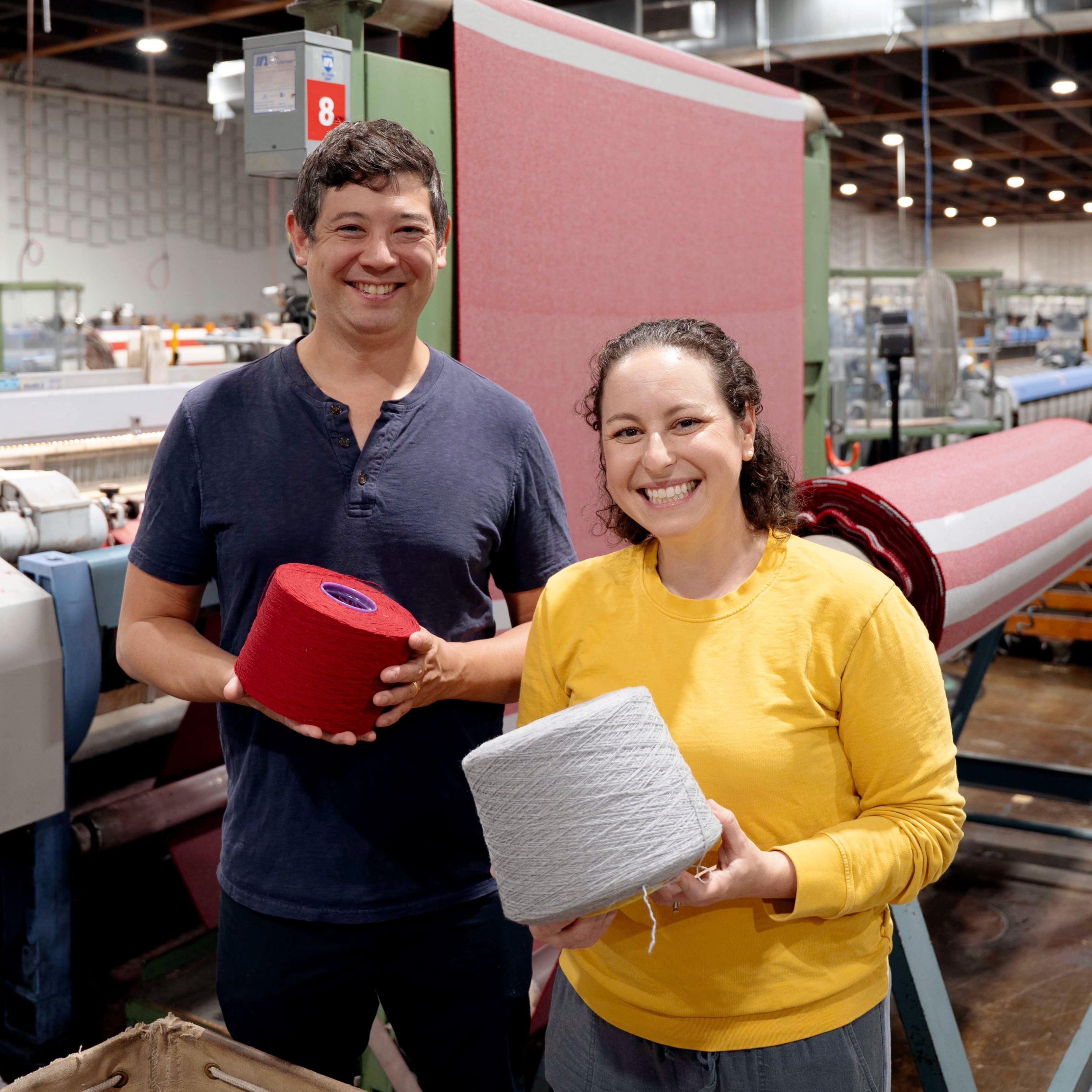

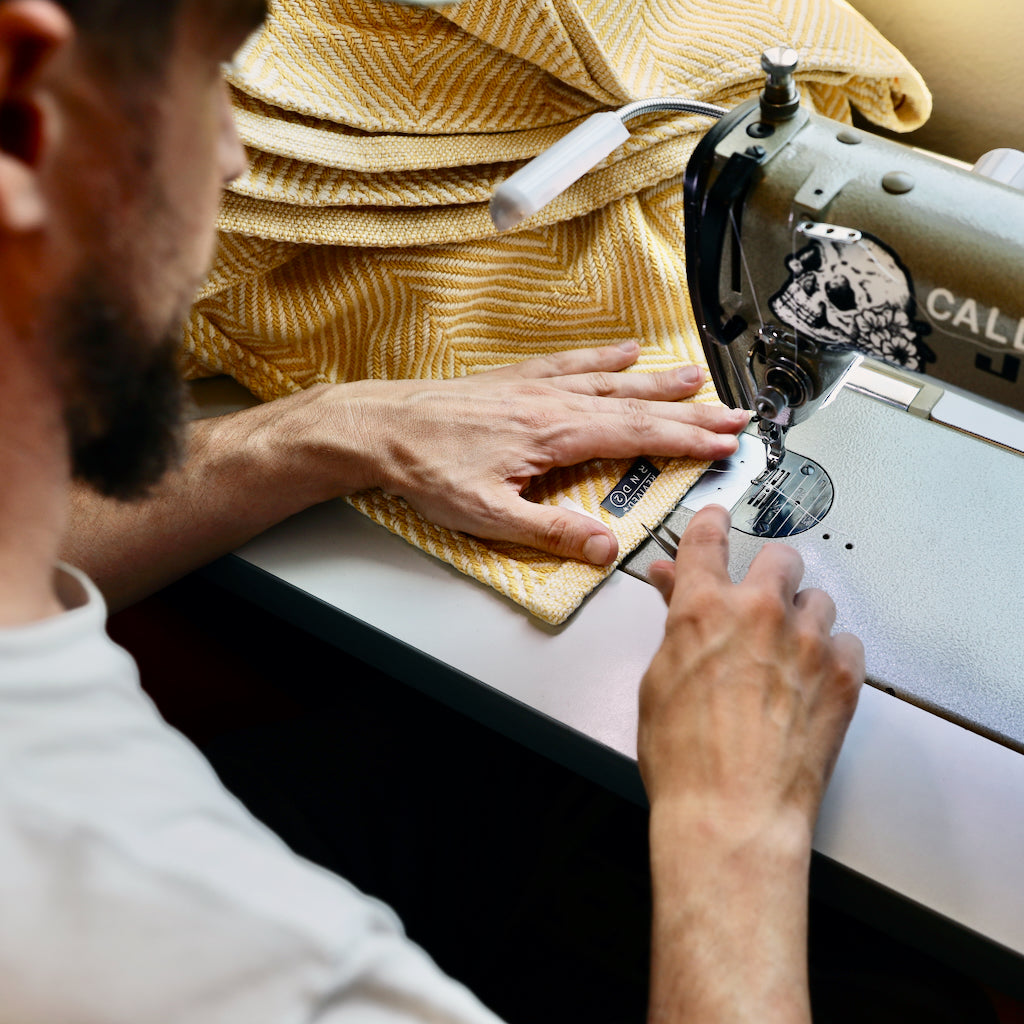
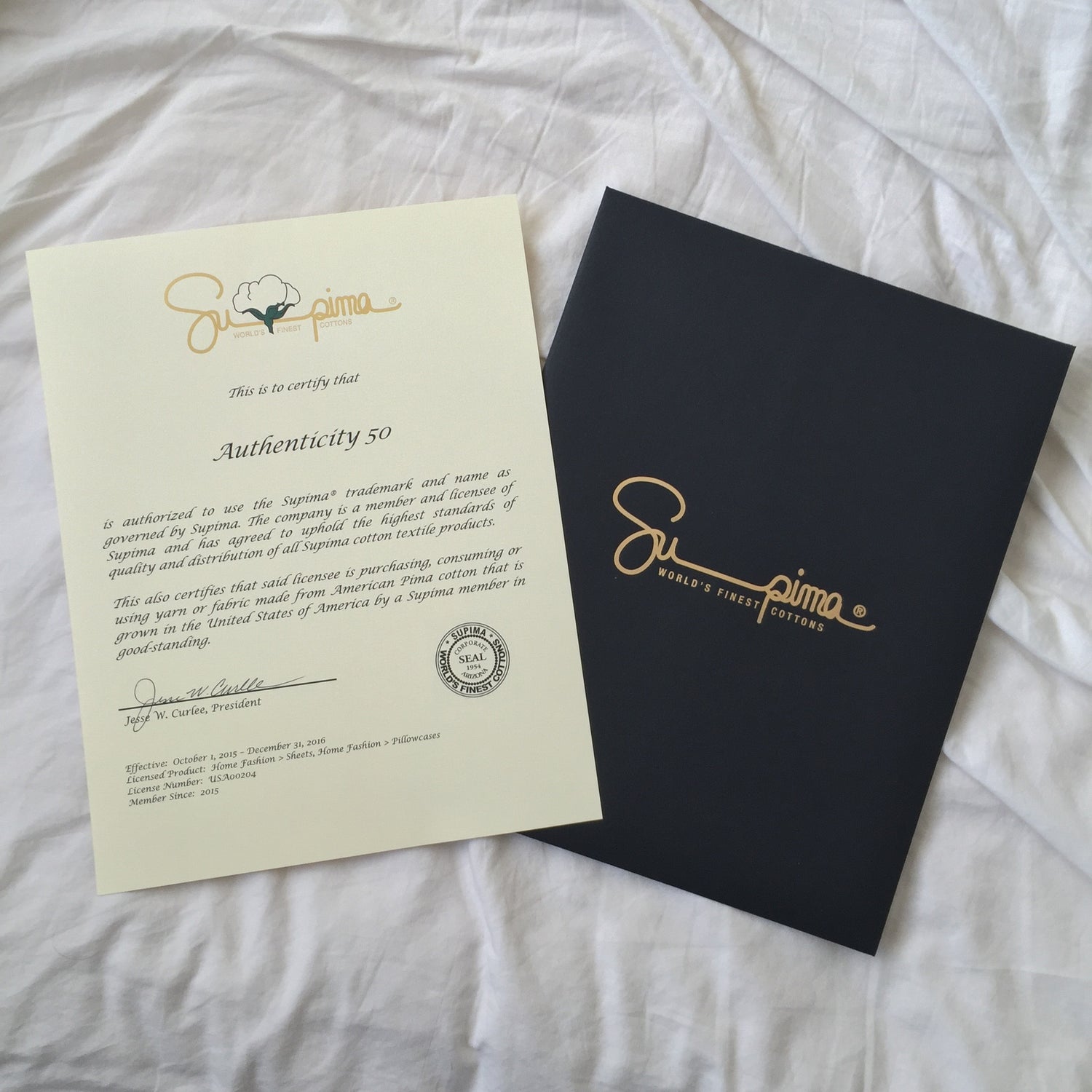

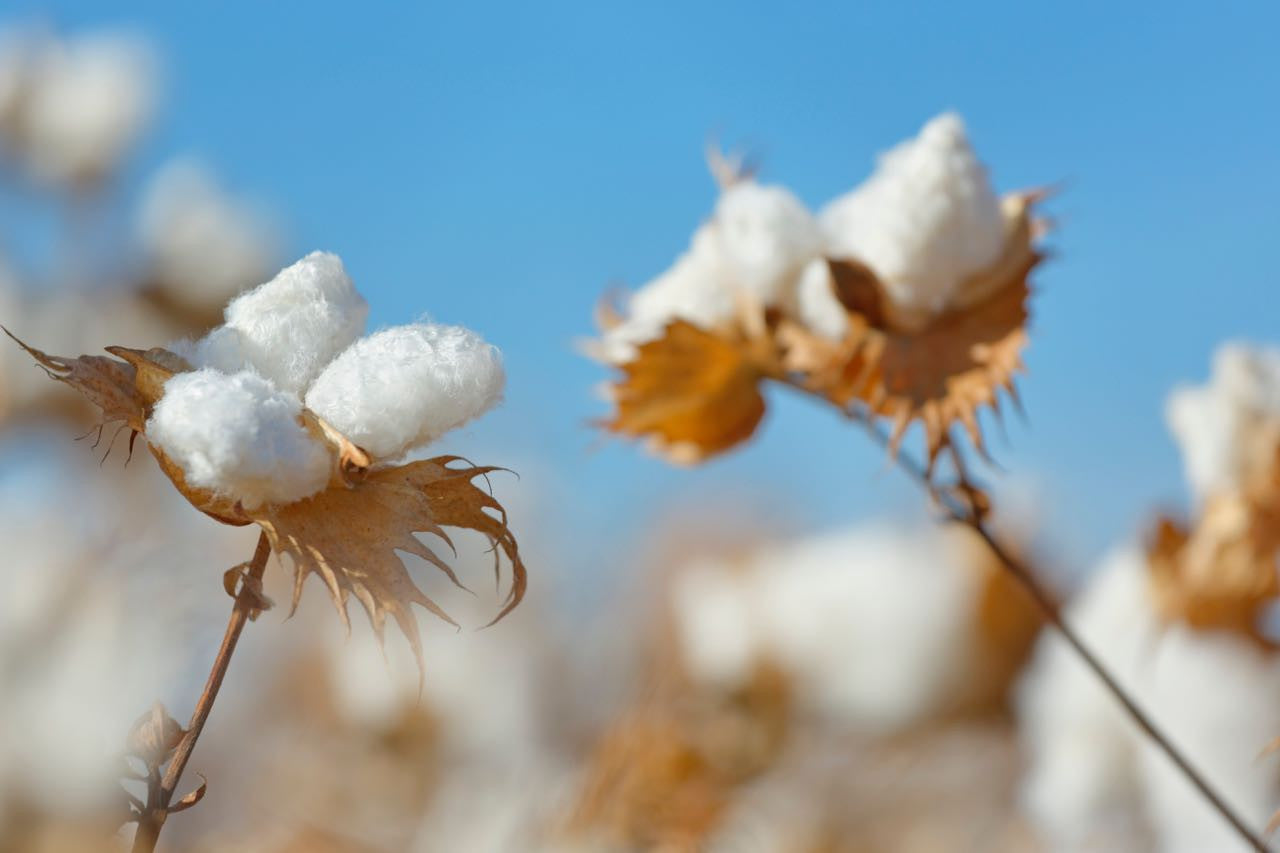
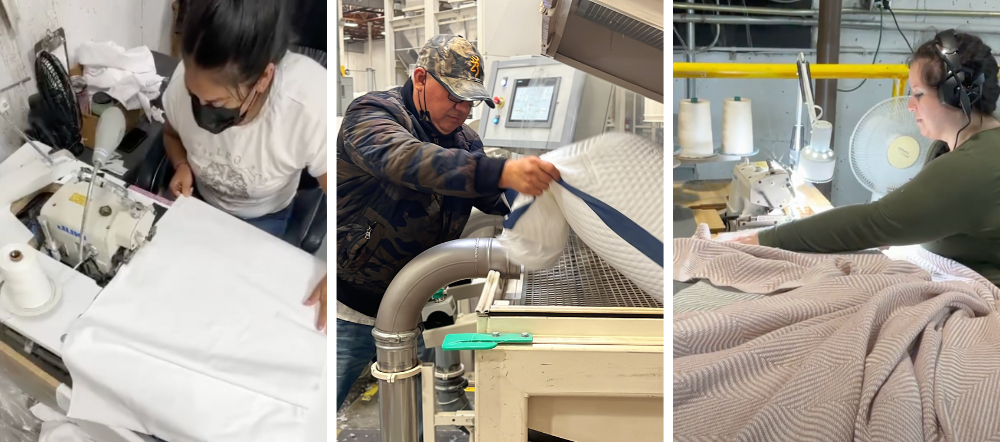
19 comments
Beth Lawton
I bought our king-size 100% Supima Cotton blanket at Linen ‘N Things at least 10 yers ago. It is way too large and I would like to shrink it. What is the best way to do this? (I have access to commercial size washer and dryer.) Thank you.
Authenticity 50
Thanks for the questions Eloise, Denise and Donna, and apologies for the delay! Our cotton is not organically grown – however, organic is only half the story. Organic sheets are often treated with harsh chemicals with negate many of the organic benefits. Also Supima cotton requires significantly less water than organic cotton. In regards to thread-count we recommend our blog post on the subject here: https://authenticity50.com/blogs/news/what-is-the-best-thread-count-for-bed-sheets. To the best of our knowledge there is no organic cotton Supima sheeting material that we’ve seen. Only 3% of Cotton grown in America meets the quality requirements to be labeled Supima and only a very small fraction of that is organic. Authenticity 50 sheets, by comparison utilize cotton grown on a family-owned farm, utilize minimal chemicals and get softer and more comfortable with washes and use. We also save you lots of money, we looked at selling our sheets in department stores and they wanted to sell them at $400+ a set. We sell direct at 50% off that price.
Donna
I repeat Eloise’s question: Is your cotton organically grown and processed? Also, what is the highest thread count sheets made of 100% Supima cotton? Where can I buy organic 100% Supima cotton high thread count sheets?
Denise Oliver
HELP…somewhat confusing..just bought sheets 410 tc pima cotton. I thought they were all cotton as the package does say 100% cotton. When I googled what the tc meant I am confused. Does the tc mean thread count (as I originally thought) or is it that my sheets are a mix of cotton and polyester?? Very deceiving….any help would be greatly appreciated? Thank You,
Denise
Eloise
Is your cotton organically grown and processed?
Leave a comment
This site is protected by hCaptcha and the hCaptcha Privacy Policy and Terms of Service apply.